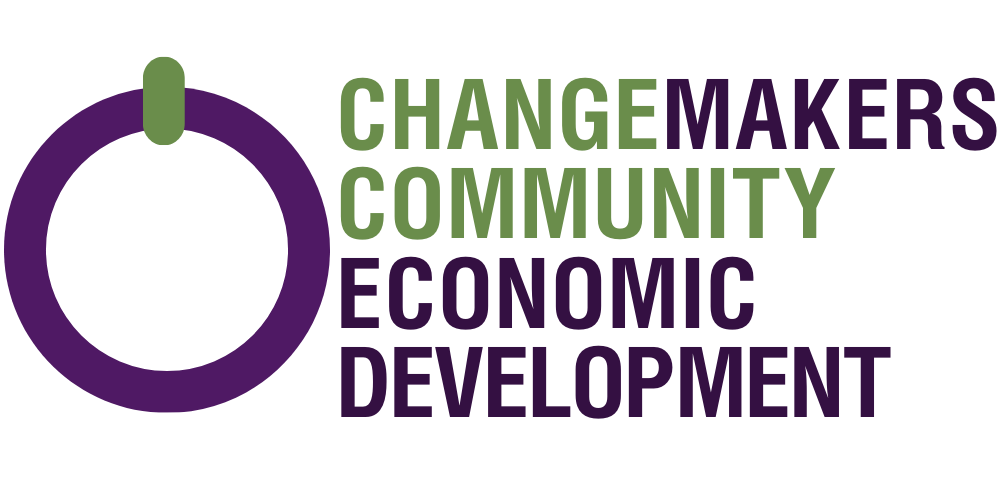Planting the Seeds of Change
Planting the Seeds of ChangeMakers Hawaiʻi:
A Conversation with Founder Olani Lilly
Olani Lilly’s journey begins not in a boardroom but out in the community. She envisioned a model of philanthropy rooted in cultural values and economic justice.
With over 25 years of leadership in Native Hawaiian-focused education and community development, Olani has woven together experiences in grant writing, program design, and systems change to establish Changemakers Hawaiʻi, a Native‑led Community Development Financial Institution committed to ending poverty statewide
WHY DID YOU START CHANGEMAKERS HAWAIʻI?
Olani’s answer is simple yet profound: “I wanted to provide the opportunity between seed and fruit.” Rather than grant cycles alone, she envisioned a self-sustaining ecosystem that supports entrepreneurs, educators, and cultural leaders with financing, coaching, and culturally grounded business training.
That vision shaped ʻĀinapreneurs, a statewide rural business leadership and capital program that embeds ʻŌlelo Hawaiʻi into business practices and offers a revolving loan fund that grows as repayments fuel new loans. The initiative blends affordability, mentorship, and cultural restoration in the service of systemic equity.
WHAT DRIVES YOUR “WHY”?
Olani says that working in Hawaiʻi’s rural and underserved areas, notably among Native Hawaiian communities, revealed a persistent gap: access to capital was rarely aligned with cultural identity or long-term resilience. She aimed to shift philanthropy from a transactional to a relational approach, from one-off grants to regenerative economic support rooted in kuleana, aloha, and mālama.
WHAT DOES SYSTEMS-LEVEL CHANGE LOOK LIKE?
For Olani, it’s about transforming how capital flows in Hawaiʻi: creating pathways that empower local small businesses to thrive, while preserving and uplifting Indigenous culture. Since 2023, three cohorts of ʻĀinapreneurs have graduated, including Native Hawaiian ventures like seed nurseries and food businesses. These entrepreneurs receive business-plan support, affordable loans, and culture-centered back-office services like marketing, accounting, and operations, all delivered with mentorship rooted in Hawaiian values.
The revolving loan fund grows each year as businesses repay loans, creating a sustainable “forever fund” that fuels future economic opportunity in rural and Native communities.
WHAT LESSONS DO YOU HOPE FUNDERS AND COMMUNITIES TAKE AWAY?
Olani encourages a shift from short‑term metrics to a broader definition of success measured in community autonomy, restored ʻāina, thriving Indigenous enterprise, and intergenerational leadership. She models participatory development, inviting community voice in strategy, evaluation, and storytelling. By embedding language, cultural values, and local decision-making into Changemakers Hawaiʻi’s structure, she hopes to inspire lasting, systems-level transformation.
LOOKING FORWARD: WHAT’S NEXT FOR CHANGEMAKERS HAWAIʻI?
Olani sees growth across neighbor islands, expanding the program beyond Hawaiʻi Island to Oʻahu, Maui Nui, and Kauaʻi. She plans to scale the revolving loan fund, enhance back-office support, and grow state and philanthropic investments that support cultural and economic resilience. Above all, she’s building a model where economic development and ʻāina stewardship are one indivisible system, a legacy of care, prosperity, and equity for Hawaiʻi.
Olani Lilly’s journey isn’t just about launching programs, it’s about planting seeds of change that grow across generations. Her founding story reflects a deep commitment to Native Hawaiian values, sustainable empowerment, and an economic system where culture and capital thrive together.
If this post sparked something in you — a sense of kuleana, a desire to serve, or a vision for stronger communities — delve further into our ecosystem of change.




